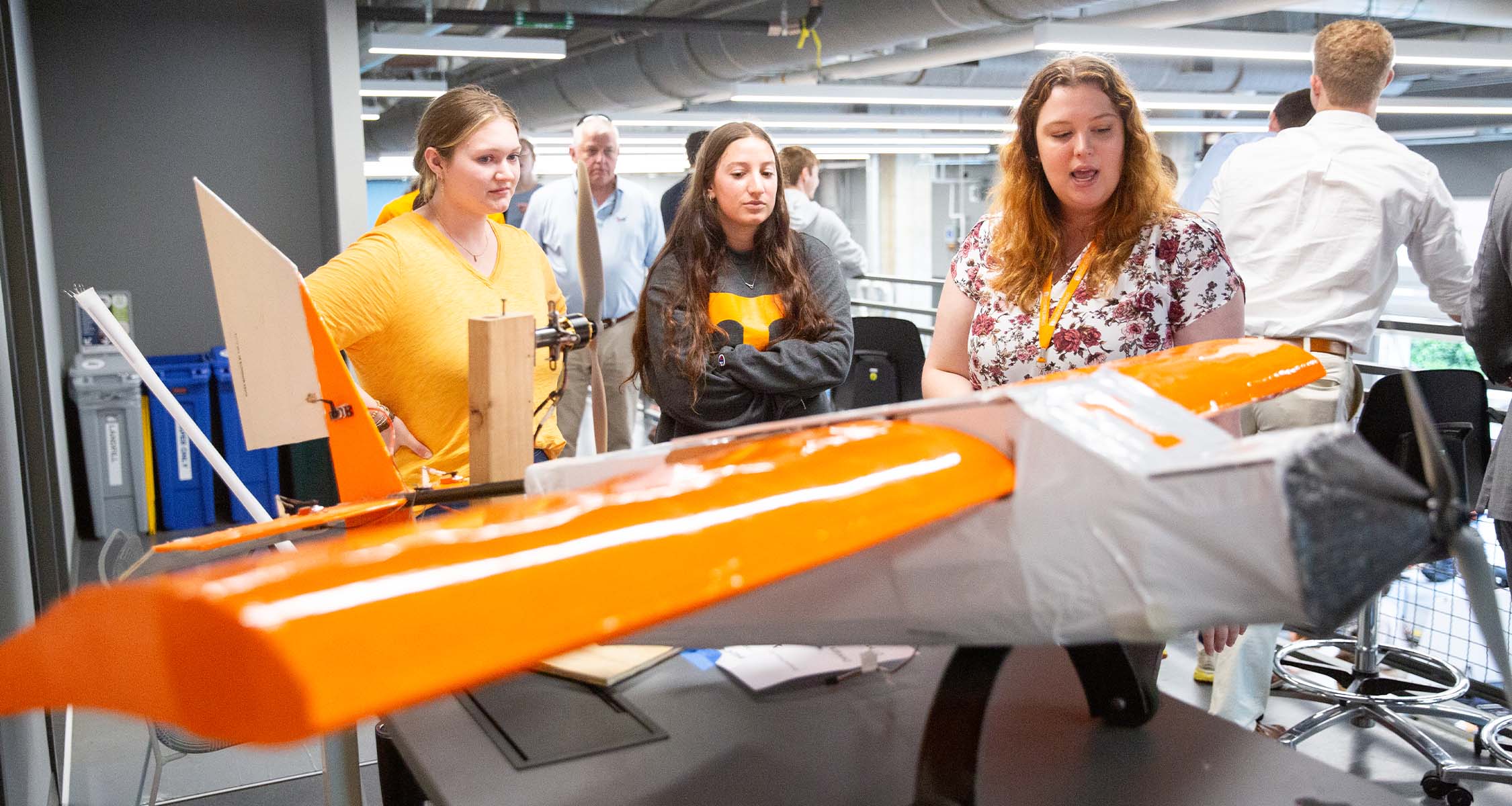undergrad programs
BS in Aerospace Engineering
From the smallest drones to the largest NASA rocket, if it flies then aerospace engineering was involved. Aerospace engineers are some of the greatest minds of today, playing an essential role in advancing technology, safety, and sustainability. Our program equips students to succeed in such a high caliber industry, connecting undergrads to some of the biggest names in the field for sky-high academic and career potentials.
Program Overview
Our aerospace engineering BS program consists of four main research thrusts: aerodynamics, propulsion, orbital mechanics, and stability/control. Through a blend of a rigorous course curriculum, hands-on research opportunities, and public service engagement, students develop a strong foundation in engineering principles and critical thinking skills so they can make meaningful contributions in an evolving global landscape

Why Study Aerospace Engineering?
Aerospace engineering offers students the opportunity to work on cutting-edge technologies that explore and expand our understanding of air and space. Engineers in this field contribute to advancements in transportation, defense, and space exploration, addressing complex challenges and pushing the boundaries of innovation.
Minor
In addition to a BS program, our department offers a minor in aerospace engineering.
Five-Year BS/MS
For students seeking to complete their MS degree in aerospace engineering, the department offers a five year BS/MS program for qualified students. This program allows you to take up to nine hours of graduate coursework toward your undergrad electives, giving you a jump start on your MS degree.

Our Curriculum
The first two years of our aerospace engineering curriculum are considered to be lower-division and the two remaining years upper-division. Students must apply for progression to departmental upper-division courses, which depends on academic performance. Factors considered include overall grade point average, performance in selected lower-division courses, and evidence of orderly progression through the prescribed curriculum.
In order to remain on track and graduate on time, students must complete the minimum requirements for each tracking semester, known as milestones. Milestones include successful completion of specified courses and/or attainment of a minimum GPA.
Visit the course catalog to learn more about the curriculum and its milestones.
Featured Courses
Check out some of the courses that our students take as part of the aerospace engineering program. For a full list of courses, use the link below.
AE 351 Compressible Flow
One-dimensional internal flow with shocks, friction, and nonadiabatic conditions. Two-dimensional external flows.
AE 370 Airplane Performance
Airplane aerodynamics, characteristics of propulsion systems, prediction of airplane performance, static and dynamic stability, and control of aircraft.
AE 424 Astronautics
Solar system; orbital mechanics; propulsion; atmospheric entry, including thermal protection materials, human factors in space flight, the space environment, and current topics.
AE 460 Aerospace System Design
Synthesis and design of a complete aerospace system. Participation in team design effort including formal presentations and design report.

Join Us on Rocky Top
Apply to UT
Interested in learning more about becoming an Engineering Vol? Want to learn about the college’s admission requirements for new students? Use the links below to learn more about how to join our Volunteer community!
